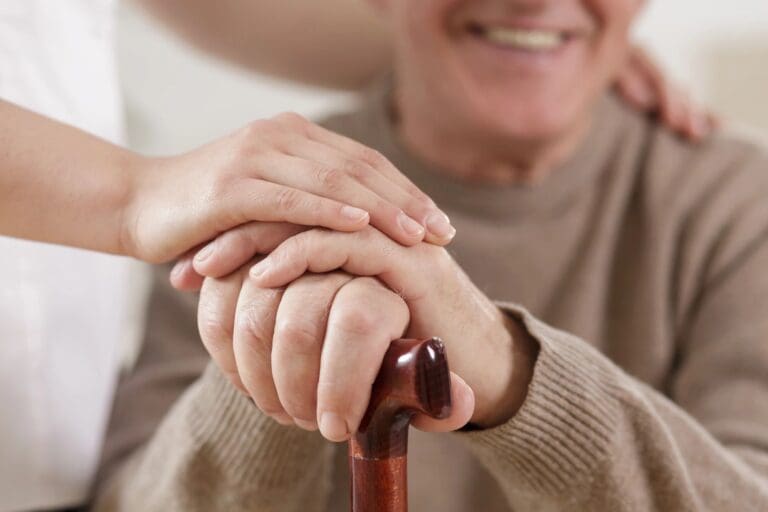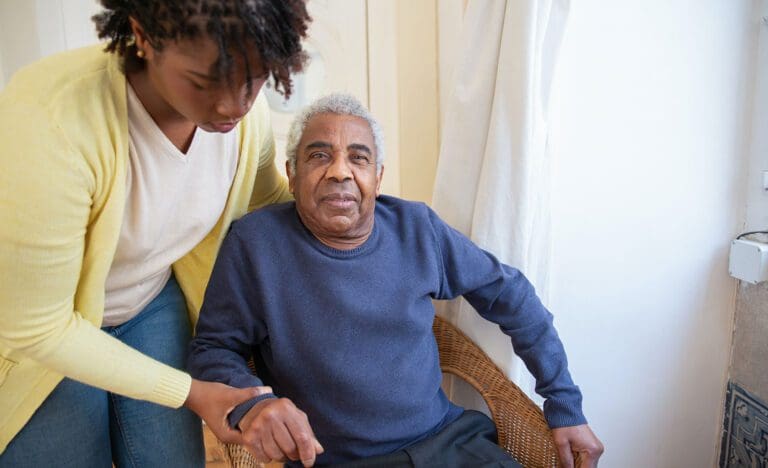Obligatory

Obligated Caregiver To A Demanding Uncle
Sami – My Uncle
An “obligated caregiver” is someone who cares for another, often a family member, due to a sense of duty, familial obligation, or societal expectation, rather than personal choice. This role can bring significant emotional and physical burdens, as the caregiver may feel compelled to provide care despite personal or financial challenges.
In the intricate weave of family dynamics, Uncle Sami’s thread was a stark contrast, a blend of brilliance and abrasiveness that marked every phase of his life. From his earliest days, he was the epicenter of his parents’ world, an only child doted on and indulged, which perhaps laid the foundation for his demanding nature. His childhood was punctuated with outbursts and tantrums, a prelude to the complex character he would become.
As a teenager, Sami’s intellect shined brightly, a beacon of potential that led him to the prestigious halls of UC Berkeley’s School of Engineering. Yet, despite his academic prowess, Sami struggled to navigate the subtler nuances of human emotion, his interactions often marked by a lack of empathy and understanding.
Adulthood saw Sami ascend to new heights, graduating at the top of his class and later co-founding a technology firm that would secure his financial success. His role as CFO was a testament to his sharp mind and strategic thinking. Yet, personal happiness eluded him; his marriage, though filled with love, was short-lived, ending with his wife’s tragic battle with cancer. The loss hollowed him, leaving him to tread the waters of life alone, save for his stepdaughter, who drifted away in the wake of her mother’s death.
Retirement should have been Sami’s golden era, a time to indulge in hobbies and leisure. Instead, he became a recluse, his interactions limited to solitary outings and the occasional bar or restaurant visit. It was during this twilight of his life that I, a relative who had observed him from the peripheries, stepped into the role of caregiver.
Our relationship was never easy. Sami was a man set in his ways, often abrasive, repeating stories of past deeds as if to affirm his worth. He reminded me incessantly of the time he had helped my mother, leveraging this single act of kindness as a perpetual IOU I was bound to honor. Despite my own busy life, I found myself ensnared by a sense of duty, responding to his calls, addressing his endless requests, and navigating his mood swings.
My uncle could be very difficult to talk to – he repeated himself, got angry, complained, and was verbally abusive, especially when he was drunk. I was really the only person in his life that could become his primary caregiver.
We had frequent conversations that went like this: “Do you recall the time when your mom was stuck in London because she missed her connecting flight and I made special flight arrangements for her to get to the USA so she could attend your cousin’s wedding?”
I would respond with a deep sigh and a big smile on my face, knowing full well what was coming next. “Yes, I do Uncle.”
He would respond brimming with pride. “I had to call so many airlines and be on hold for hours before I could get someone to help me. I had to pay an extra $100 for the ticket to get that all set up for your mom.”
I would respond, “Yes, that was really great of you.” He would then follow up with, “So I know you will take good care of me when I cannot do that for myself.”
It was as if he wanted to cash in his chips for all the good things he had done for others.
I felt very ill-prepared to care for him. He had a unique way of getting under my skin and making me feel obligated and guilty. For example, he constantly had small requests like calling the phone company for him. These seemingly small tasks were quite time-consuming. I already had so little available time as it was.
When my personal life was extra busy, I felt I neither had time nor energy to take his calls. Sometimes, guilty feelings would wake me up in the middle of the night leading me to call him back the next day. A couple of times he called me while I was traveling and dealing with severe issues with my parents. When I did not return his call, he had his friend call me. I felt it was very demanding and insensitive of him to do that since he just wanted attention and someone to talk to.
I knew that my uncle would notice my state of stress every time and follow up with “I just got two tickets for us to see a show.” He and I enjoyed stand-up comedians. He used to attend all the shows of one of his few close friends, who had been a very successful stand-up comedian. I always enjoyed the shows with him, even when the stand-up comedian was not very funny. My uncle would find the hidden gems of humor in the acts and do a very big belly laugh. His laugh would always crack me up.
Before every conversation with my uncle, I would promise myself that I was going to be very patient with him because I did feel a lot of empathy for his situation. I would promise myself I would behave at least this once. Inevitably I could not control my emotional outbursts in the face of his highly unreasonable behavior. The worst incident happened when I was in the hospital with my dad. My mom was not feeling well that day either. My uncle called ten times in thirty minutes. I could not take his call as I was waiting for dad’s doctor to call me. When I finally called him back, he said, “I hope your parents are doing well today. I was trying to send a picture of the stream behind my backyard that is flooded due to heavy rain, and the camera that you got for me is not focusing very well when I zoom in.”
I had an outburst that I still regret to this day. “You are the most selfish person I know. It is insane that you are calling me incessantly with no regard for what is going on in our lives. Please don’t call me again.” A few months later, after many rounds of apologies and assurances that I wanted to care for him, he forgave me.
I became his caregiver a few years after he retired. His diabetes was getting worse, as was his drinking. He was finally diagnosed with prostate cancer. He finally deteriorated to the point where he could no longer care for himself. I had no choice but to step in to help him. I was overwhelmed and felt the weight of the world on my shoulders.
In caring for Uncle Sami, I confronted my limits, learned the depths of patience, and grappled with the nuances of empathy and forgiveness. Our journey was not one of profound connection but of mutual acceptance and understanding, a testament to the enduring, albeit complicated, bonds of family.

Balancing Duty and Love
“Abigail, could you get the phone company on the line for me? They messed up my bill again,” Roy demanded, his voice gruff and impatient as he waved the crumpled bill in the air.
Abigail sighed, knowing her uncle’s demanding nature all too well. She had grown accustomed to these calls, but they still wore on her patience. “Sure, Uncle Roy. I’ll take care of it,” she replied, her voice steady and reassuring.
Roy, a man who had wielded power and wealth throughout his life, struggled with losing control as his health declined. His once commanding presence was now fraught with frustration. “And don’t forget to check on my stock portfolio,” he added.
Despite his brusque manner, Abigail knew he was trying to hold on to the semblance of control he once had. “I’ll get right on it, Uncle Roy. Anything else?”
As the days turned into weeks, Abigail’s respect for her uncle’s past achievements clashed with the frustration of his endless demands. She often found herself confiding in friends, “Sometimes, I think he just wants to keep feeling important,” she admitted, her voice tinged with sadness and exhaustion.
One evening, Roy shared a rare moment of vulnerability. “You know, Abigail, I did some pretty incredible things in my time,” he said, a hint of pride softening his usual gruffness. He continued, “But, sometimes I wonder if anyone remembers the things I accomplished.”
Abigail nodded, listening intently. “I know you did, Uncle,” she said, her eyes meeting his with genuine affection. “Your achievements shaped a lot of lives, including mine.”
As weeks passed, Roy began to open up more, recounting stories of his youth and accomplishments. “There was this one deal that almost didn’t go through. Millions were at stake but somehow I managed to pull it off,” he said, his eyes twinkling with the memory of his younger, more vigorous self.
Abigail smiled. “You’ve always been a great negotiator. That’s something I’ve always admired about you.”
Their relationship deepened, with Roy seeingAbigail not just as a helper but as a confidant. “Thanks for sticking around, Abigail. I know I’m not easy to deal with,” he said one evening, his voice softer, almost grateful.
Abigail beamed. “You’re family, Uncle Roy. I’m here for you.”
In the end, Roy’s health continued to decline, but the bond between them grew stronger. They found a new understanding, and Abigail’s love and respect for her uncle only deepened. Even as his body weakened, Roy felt a sense of peace, knowing that his legacy would live on through Abigail’s memories and the lives he had touched.

Humor and Healing
John and Stepdad Mike’s Story
“John, can you help me with this blasted remote? I can’t figure it out,” Mike grumbled, his frustration palpable as he jabbed at the buttons.
John chuckled, used to his stepfather’s grumpiness. “Sure thing, Mike. Let me take a look.”
Mike, a man known for his stubborn independence, found it hard to accept help, especially from his stepson. “I hate this. I’m not some helpless old man,” he muttered, his pride stinging.
John grinned, trying to lighten the mood. “You’re not helpless, just technically challenged, he teased gently”
Despite the humor, Mike felt true tension with the situation. His health was failing, and he resisted any form of assistance. “I don’t need a babysitter, John.”
But John, determined to care for him, persisted. “I’m not here to babysit, just to help out. Besides, who else is going to put up with your grumpiness?”
Over time, Mike began to see the value in having John around. “You know, John, I’ve always handled things on my own, but having you here has made it easier. Admitting I need help is tough, but I’m glad I have you to rely on.”
John nodded, understanding the struggle. “Thanks, Mike. We’re in this together.”
As the weeks passed, they found a rhythm. John’s patience and humor slowly broke down Mike’s defenses. “You know, you’re not so bad at this caregiving thing,” Mike admitted grudgingly, a hint of a smile on his lips.
John laughed. “And you’re not so bad at being taken care of,” he retorted.
One evening, John brought home a comedy movie. “I thought we could use a good laugh,” he said, popping the DVD in and settling down next to Mike.
Mike grumbled at first but soon found himself laughing along with John. “This is actually pretty funny. Good choice, John.”
Their shared laughter became a new way to connect, easing the tension between them. “You’ve done a lot for me, John. I appreciate it,” Mike said one night, his tone softer than usual.
John smiled, his heart swelling with warmth. “We’re family, Mike. That’s what we do.”
In the end, their relationship transformed. Mike learned to accept help without feeling diminished, and John found a deeper connection with his stepfather. The journey wasn’t easy, but it brought them closer in ways neither had expected.



